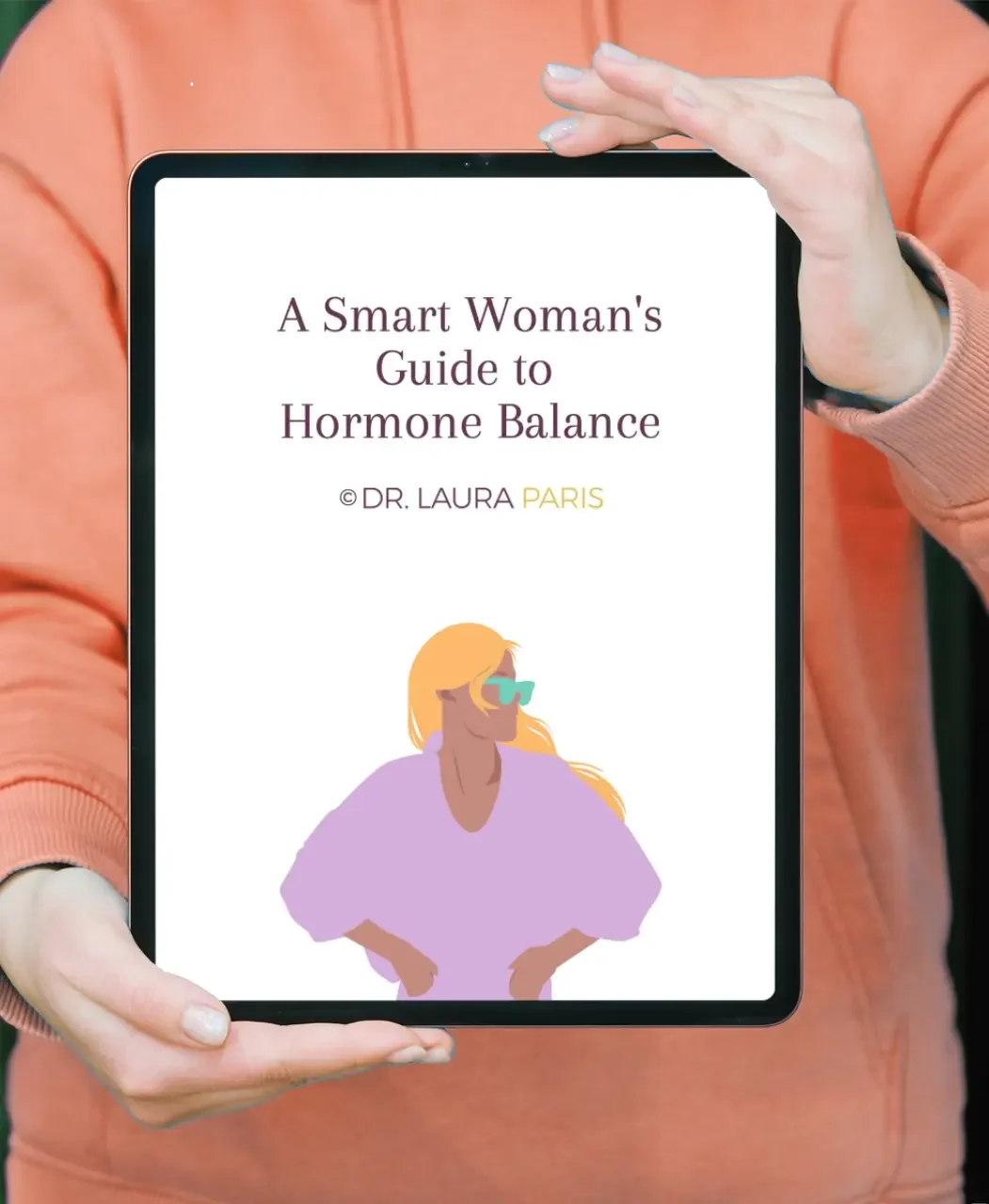
Are you ready to take charge of your health?I help women achieve vibrant health through all phases of life with a personalized, holistic approach.
Sign up for my newsletter and get your Free Gift:
A Smart Woman's Guide to Hormone Balance

Sign up for my newsletter and get your Free Gift:
A Smart Woman's Guide to Hormone Balance

If you’re struggling to conceive or have asked your gynecologist about assessing your egg quality, you’ve likely heard of the Anti-Mullerian Hormone (AMH) test. This ovarian reserve test is often used to gauge egg supply, but it has its limitations. In this post, I’ll clarify what AMH means for fertility, future reproductive potential, and conditions like PCOS.
The term “ovarian reserve” can be confusing, as it may refer to egg quantity, quality, or overall fertility potential—each of which is distinct.
Ovarian reserve is often used to predict fertility potential, but it’s not always straightforward.
AMH is produced by the granulosa cells in ovarian follicles (egg sacs) and reflects the number of follicles in your ovaries. A lower AMH level suggests fewer follicles in reserve, while a higher level indicates more.
For women nearing menopause or experiencing premature ovarian aging, AMH levels drop below 1.0 ng/ml. AMH peaks around age 25 and becomes undetectable roughly five years after menopause.
It’s important to note that the number of eggs you have doesn’t necessarily reflect their quality—quantity and quality are separate factors.
AMH levels can be tricky to interpret. There isn’t a universally agreed-upon “normal” range. For a 35-year-old woman, here’s a general guide:
However, don’t focus too much on these cutoffs! A difference between 1.0 and 0.9 may seem significant, but it rarely has a major impact on fertility. AMH levels fall along a continuum and shouldn’t be used in isolation to assess pregnancy potential.
Most AMH research focuses on IVF, as these patients are particularly concerned with egg reserves.
Importantly, AMH doesn’t provide information about egg quality. It reflects the number of eggs that can be stimulated during an IVF cycle but doesn’t predict who will get pregnant through IVF.
The test’s ability to predict pregnancy outcomes improves with age. This is crucial! Many young women with low AMH are wrongly labeled as infertile.
AMH is weakly associated with egg quality when used alone. Low AMH in your 20s doesn’t necessarily mean infertility, and normal levels at 40 don’t guarantee egg quality sufficient for pregnancy. Age remains a more important fertility predictor than AMH alone.
Yes, AMH is a valid indicator of PCOS (Polycystic Ovarian Syndrome). Women with PCOS tend to have unusually high AMH levels—up to three times higher than average.
A cutoff level of 4.7 ng/ml is considered most accurate for diagnosing PCOS, especially when combined with other clinical signs. However, AMH alone is not enough to diagnose PCOS, and a high AMH can be related to other conditions, such as functional hypothalamic amenorrhea (FHA).
AMH is:
If you’re under 35 with a low AMH, there’s no need to panic. Working with a practitioner who integrates functional and Chinese medicine—like myself—can help you naturally optimize your fertility and improve your chances of success with IVF or other assisted reproductive techniques. Contact me directly to find out more.
Since you’re here reading about AMH, you may be interested in these related posts:
Enhancing a Fertile Follicular Phase: A Holistic Approach
Improving Preconception Health with Functional Medicine
Functional Medicine for Fertility: A Personalized Path to Conception
Questions or insights about AMH? I’d love to hear them in the comments below.

Dr. Laura Paris is a women’s health specialist who provides Acupuncture and Functional Medicine care at her two clinics in Capitola and Monterey, California. She also works with women remotely in the United States through telehealth appointments. Learn more about Laura here, and message her directly here.
Click the button to talk to Dr Laura on a 20-minute discovery phone call ($67)
Thank you for this thorough post on AMH levels, as of this unhealthy lifestyle, every 6 out of 10 couples have problems with pregnancy.